3D Print Affordable Pocket Neighborhood
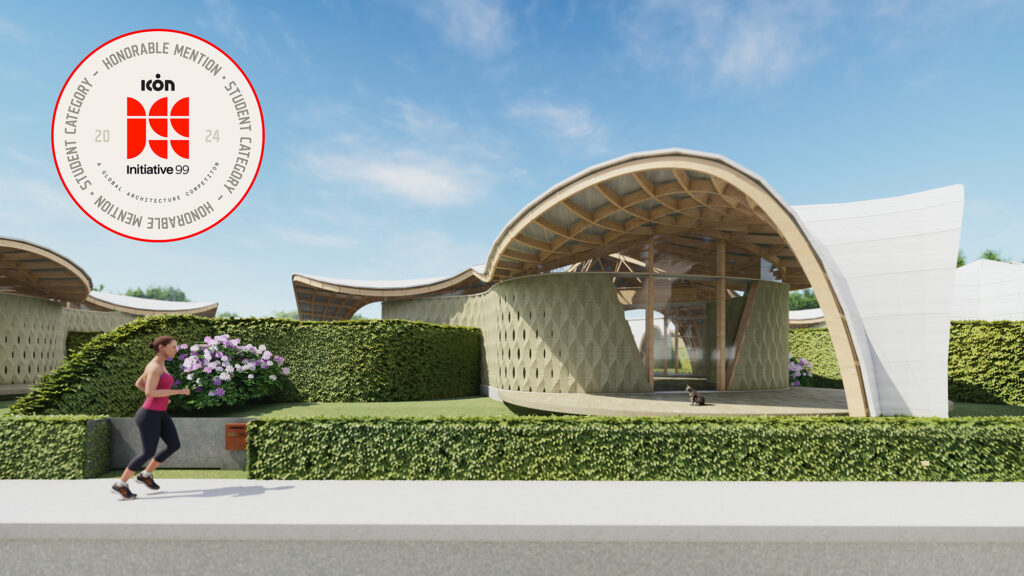
ICON Initiative 99 Phase One Honorable Mention in the Student Category
Problematic Statement
In today’s urban landscape, digital nomads, engaged professionals, and couples face a growing challenge in securing affordable housing that aligns with their dynamic lifestyles.
As the demand for affordable housing intensifies, the conventional housing market often falls short in meeting the unique needs and aspirations of this demographic.
How can we address the housing problems for digitally engaged professionals and couples seeking affordability, community, and a modern living experience?
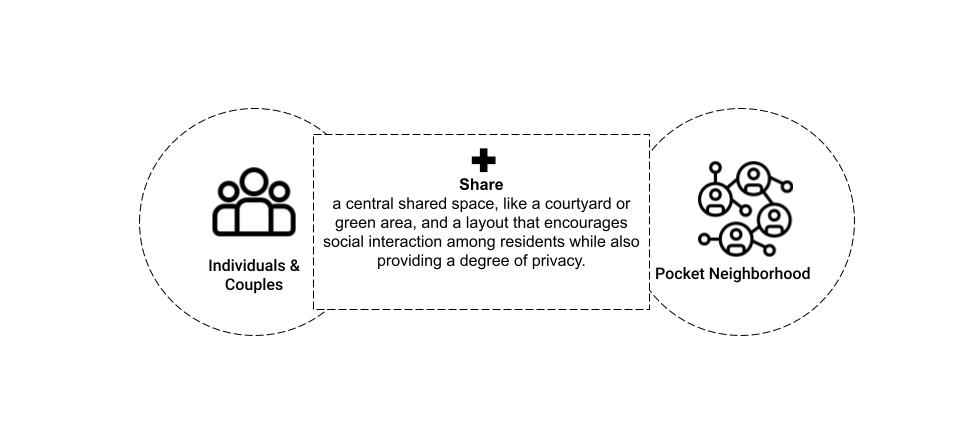
3D Printed Pocket Neighborhood
Nowadays, we believe that 3D-printed housing not only addresses the affordability challenge but also brings rapid construction, and mass customization to fit the requirements of a specific community.
Nex – Living’s “Pocket 3D Printed Neighborhood” is a design solution to the housing needs of digitally engaged professionals and couples, offering a modern, affordable, and community-focused living experience.
The neighborhood promotes a strong sense of community, neighborly interaction, and a pedestrian-friendly environment.
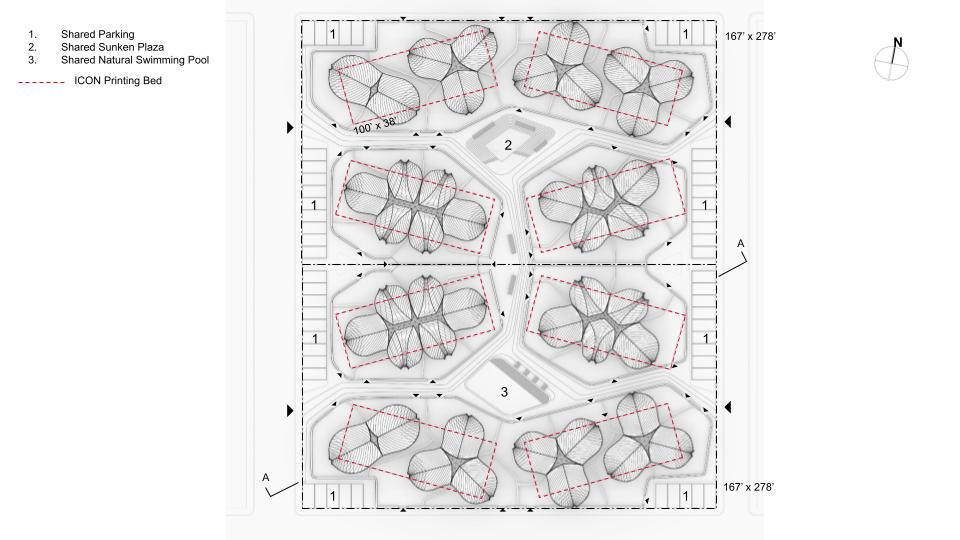
The design of Nex- Living started with basic plots in Austin to explore the possibilities of creating a community that prioritizes pedestrian-friendly spaces and having easy access to shared amenities. The concept goes beyond traditional housing layouts,
creating a landscape where parks, sunken plaza, natural swimming pool integrate into the fabric of daily life.
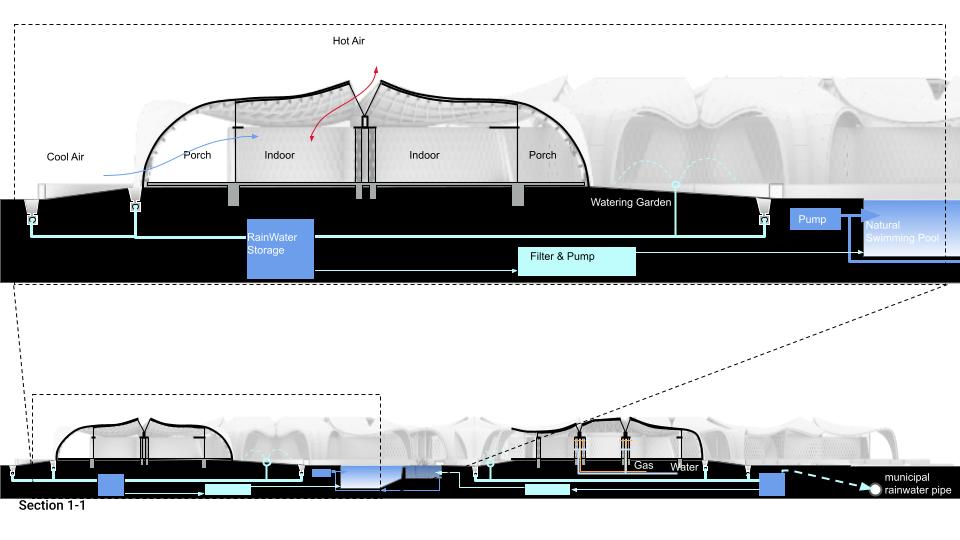
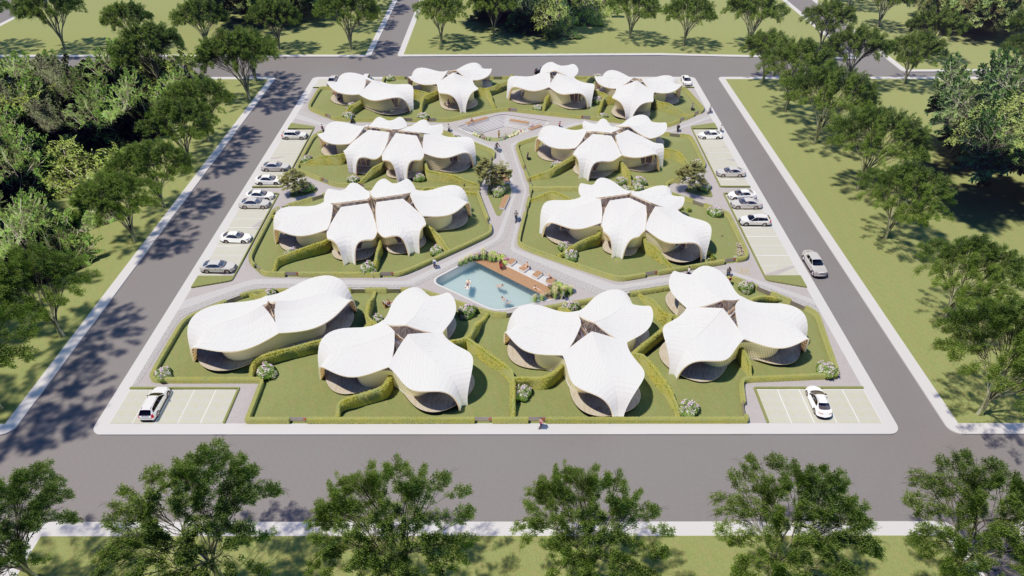
Nex-Living by IAAC (Spain) / ICON initiative-99 phase 1 Honorable Mention in student category
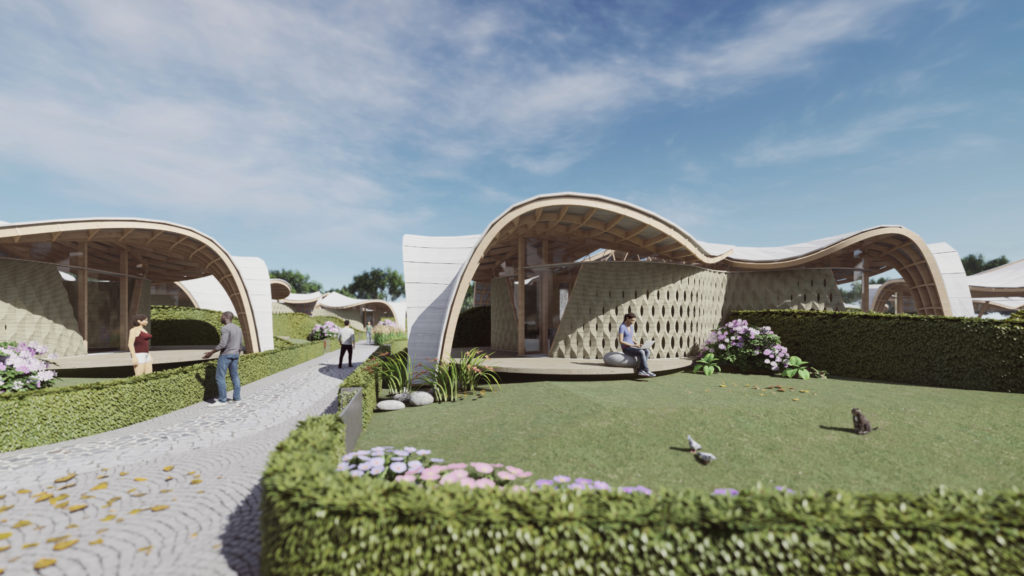
Nex-Living by IAAC (Spain) / ICON initiative-99 phase 1 Honorable Mention in student category
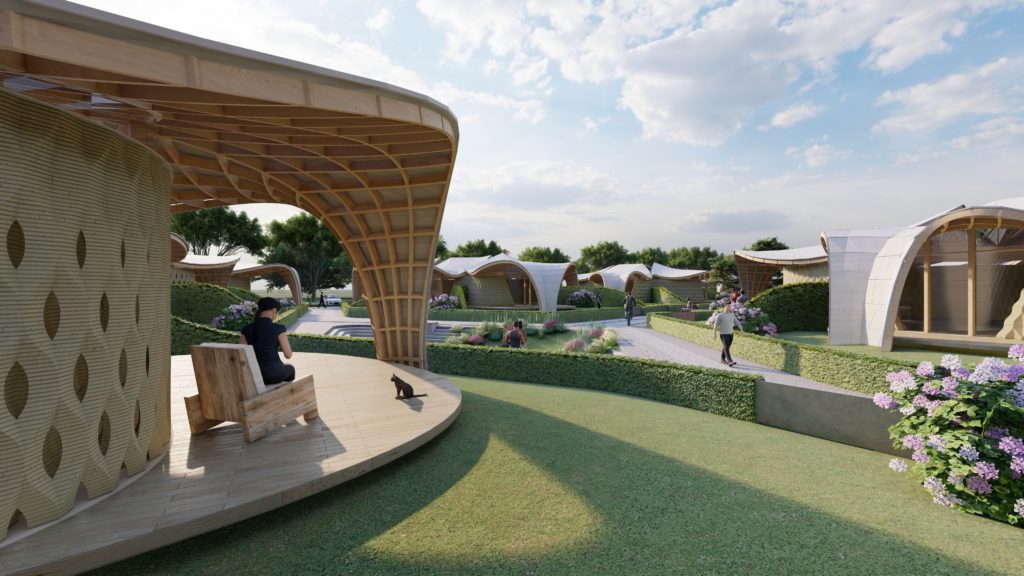
Nex-Living by IAAC (Spain) / ICON initiative-99 phase 1 Honorable Mention in student category
Affordable & Eco-Friendly Design Strategy
Nex-Living’s pocket community is founded on the principle of sharing, a concept that not only cultivates a sense of community but also minimizes costs across various aspects. In our design approach, the outer walls of units follow a rounded shape, strategically minimizing the length of wall. This intentional design choice not only fosters an efficient use of materials but also reduces energy consumption, due to the wall openings that create shaded areas against sun radiation while facilitating optimal air ventilation.
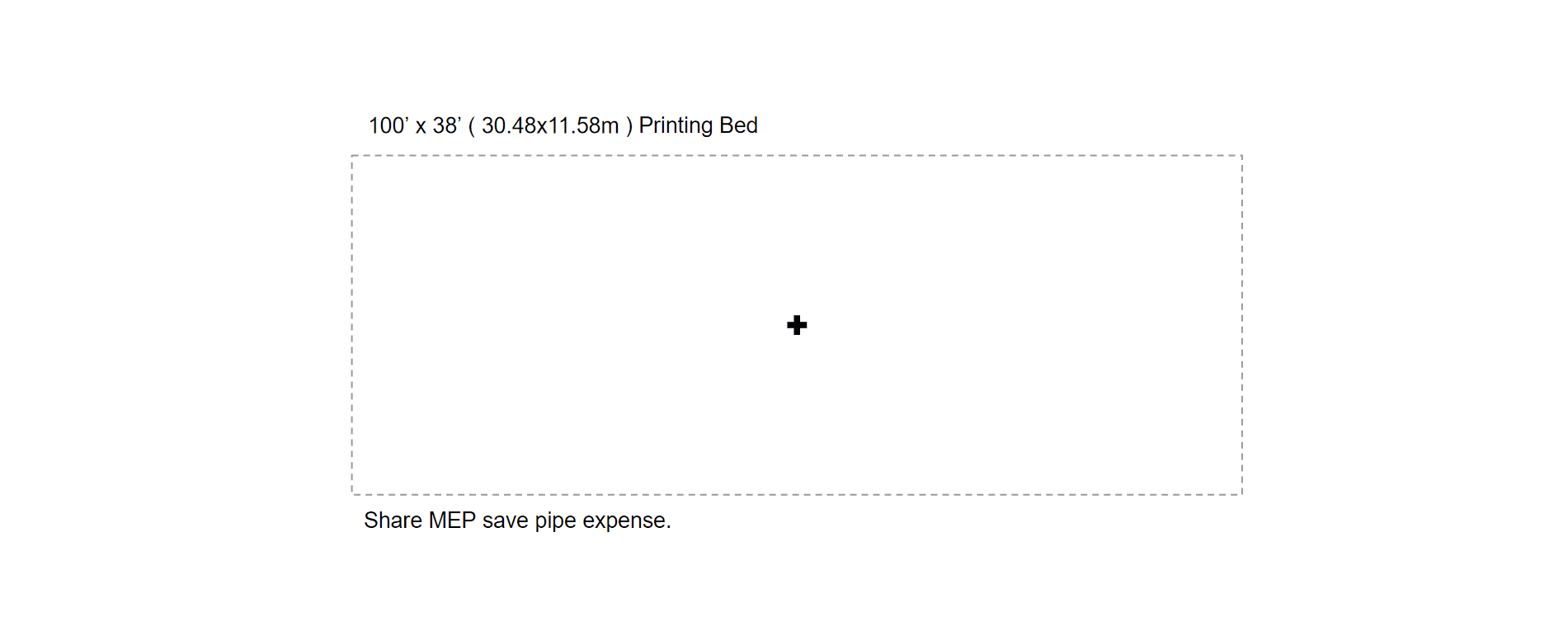
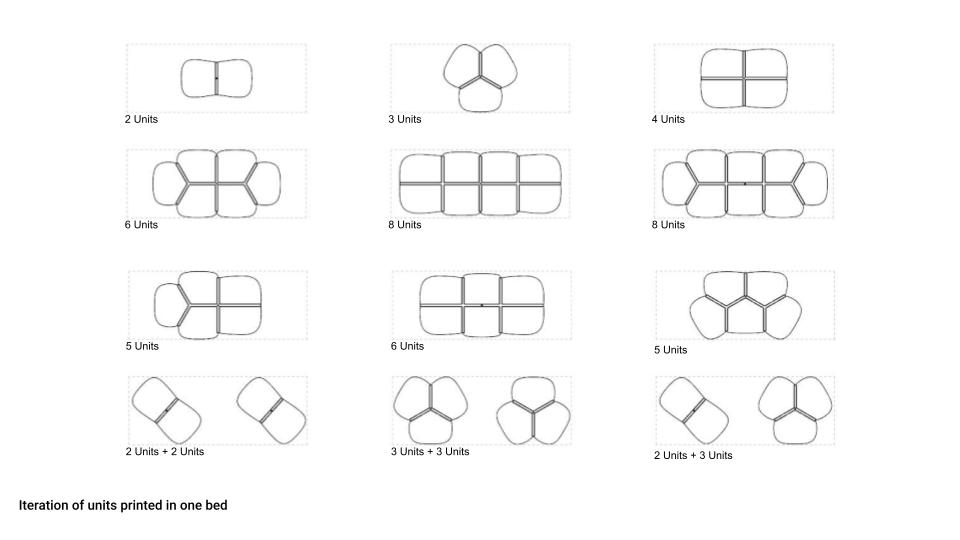
The roof, characterized by a curved slope, is meticulously shaped to harmonize with the community plan. Beyond its aesthetic appeal, this design element is a responsive solution to local climate conditions, enhancing energy efficiency and promoting harmony within the vibrant fabric of our high-density community.

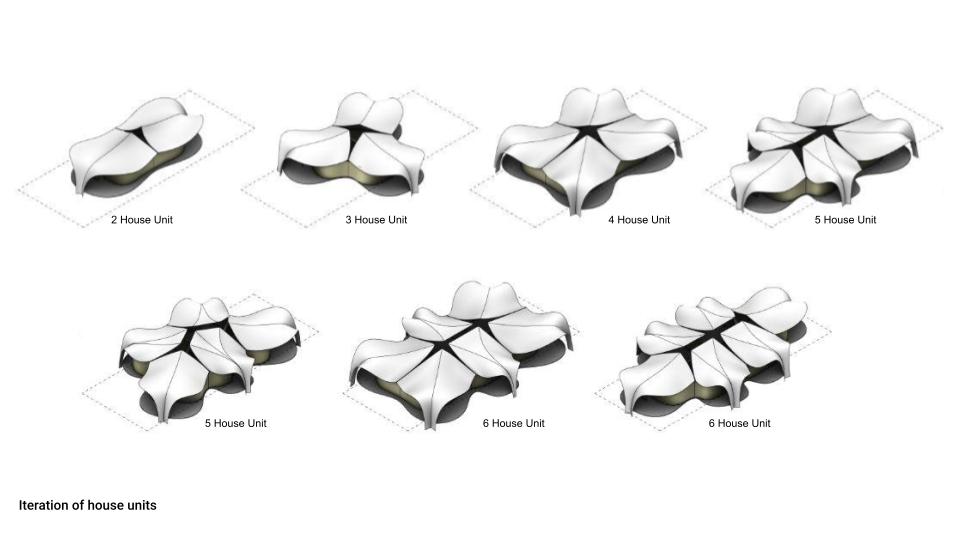
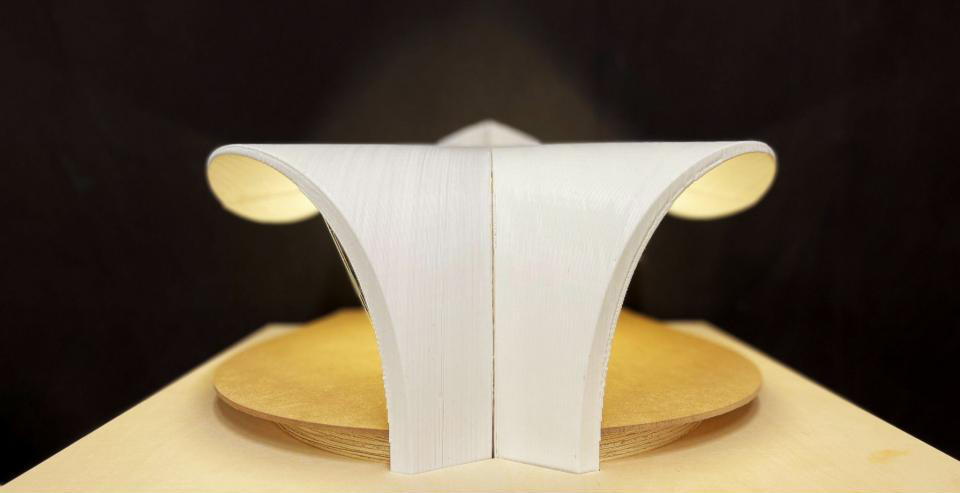
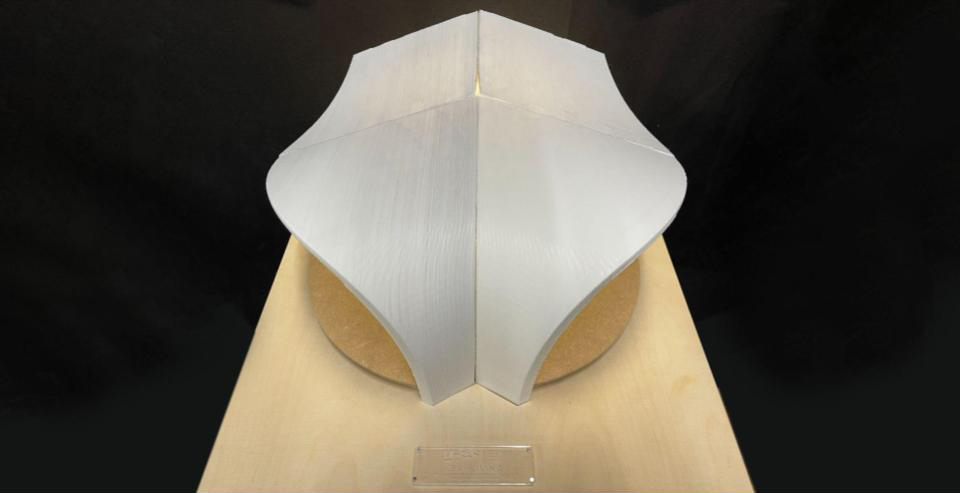
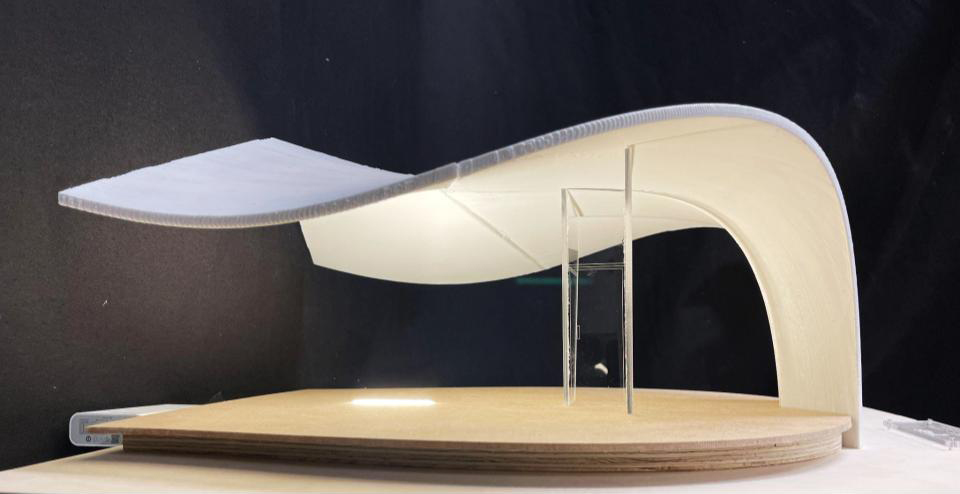



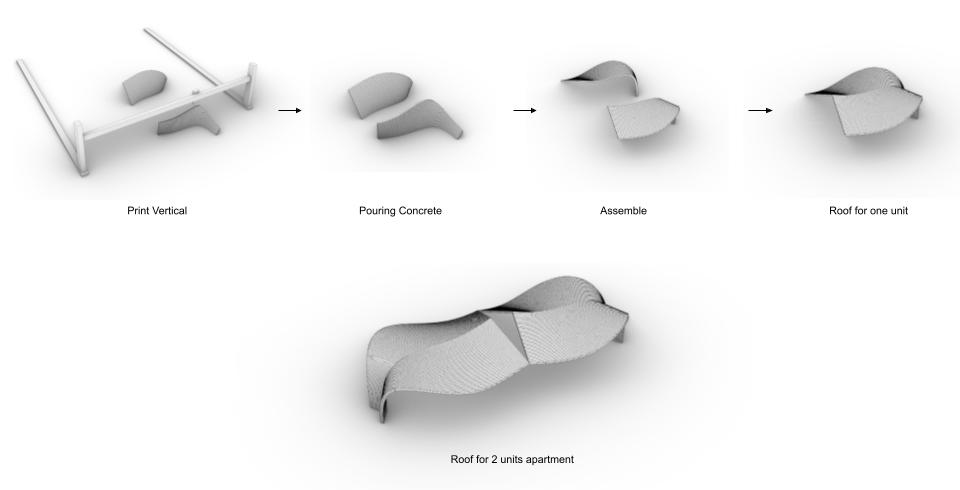
The roof can be made of concrete, printed vertically then made into roof components, and assembled into one group of roofs.
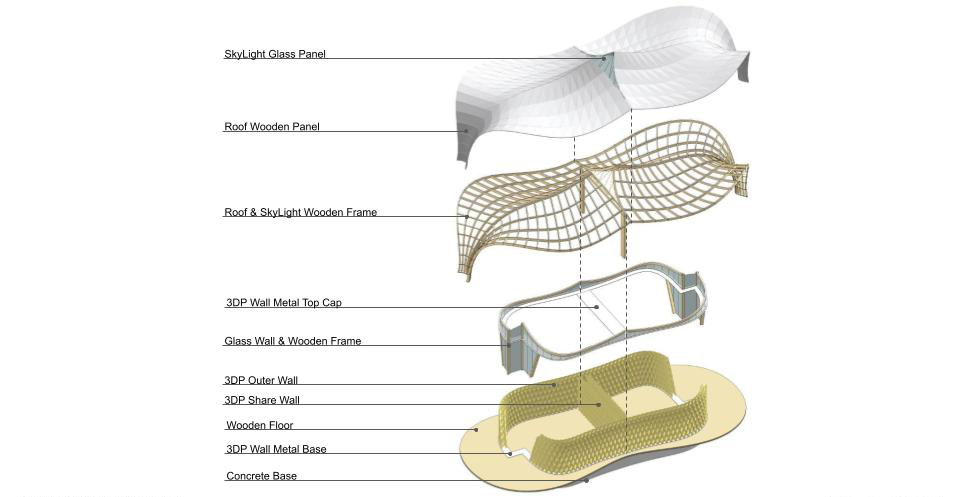
Nex-Living by IAAC (Spain) / ICON initiative-99 phase 1 Honorable Mention in student category
Or can be made of wood structure and flat triangle wooden panels.
Nexus Housing Unit
Nexus Housing is tailored to cater to the needs of individuals and couples. Our units comprise one-bedroom studios and one bedroom with a living room, designed thoughtfully to meet diverse lifestyle preferences. The studio starts with an inviting
porch, raised bed platform, and smartly enclosed amenities. The curvy roof, a focal point in the section, enhances both aesthetics and sustainability, serving as a skylight for natural ventilation and a water recovery system. Our iterations showcases scalability, and flexible configuration where multiple units printed on a single bed.
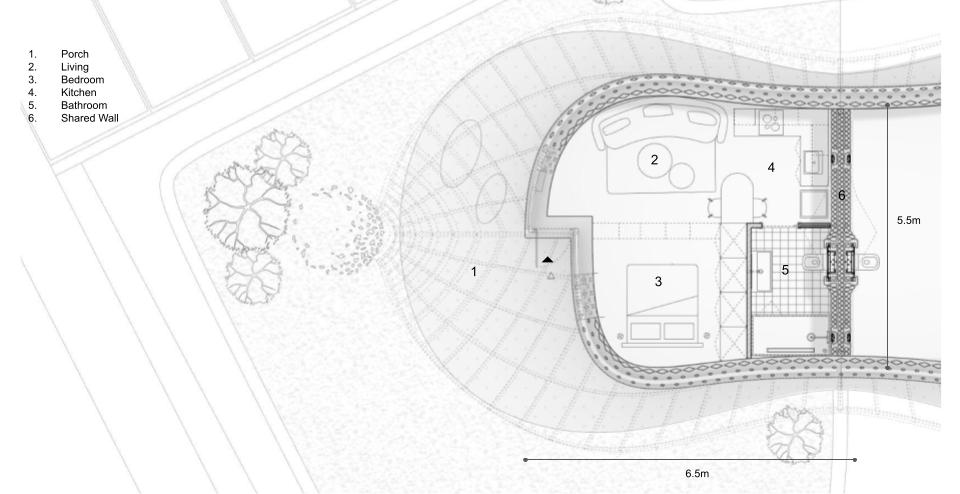
Nex-Living by IAAC (Spain) / ICON initiative-99 phase 1 Honorable Mention in student category
The essence of our housing design lies in achieving a delicate balance between shared spaces and privacy. The enveloping 3D printed walls not only ensure a safe and comfortable interior but also contribute to a sense of security for the residents. Ample
natural light streams in through front windows, doors, skylights, and openings between walls and roof, creating a well-lit and inviting living space. The thoughtfully dropped roof design enhances privacy for both the porch and inner spaces, culminating in a harmonious blend of community living and personal retreat within Nexus Housing.
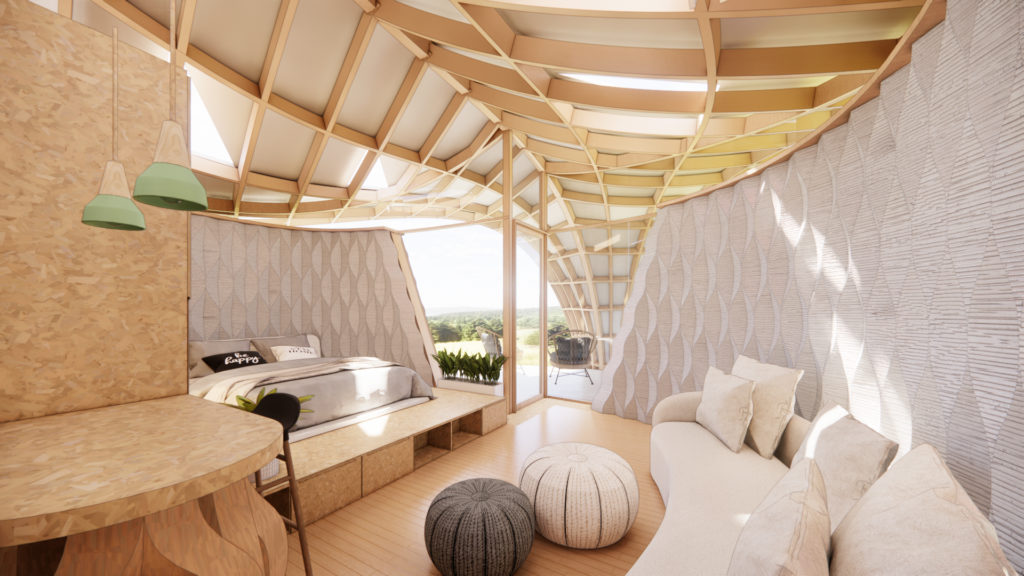
Nex-Living by IAAC (Spain) / ICON initiative-99 phase 1 Honorable Mention in student category
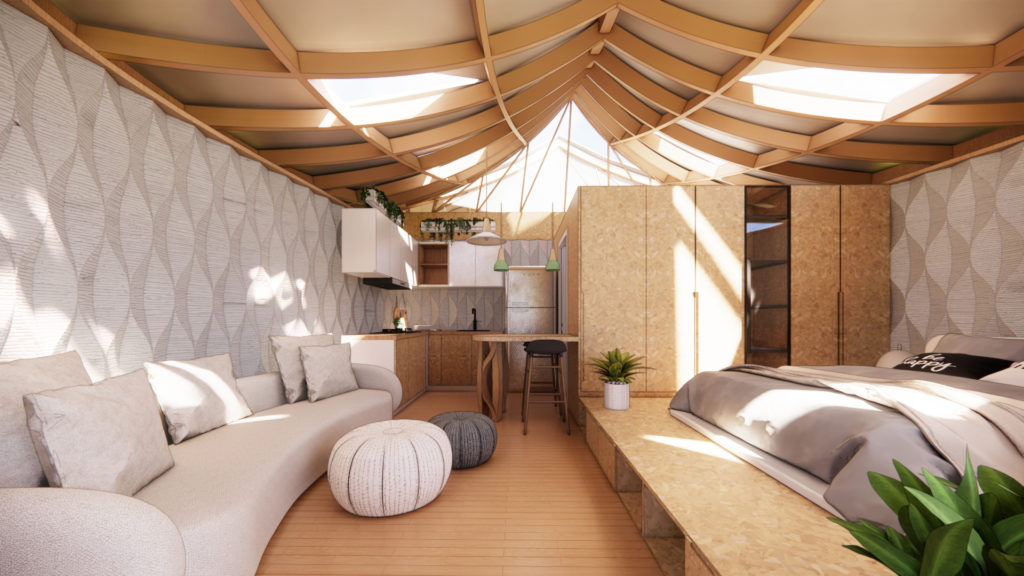
Nex-Living by IAAC (Spain) / ICON initiative-99 phase 1 Honorable Mention in student category
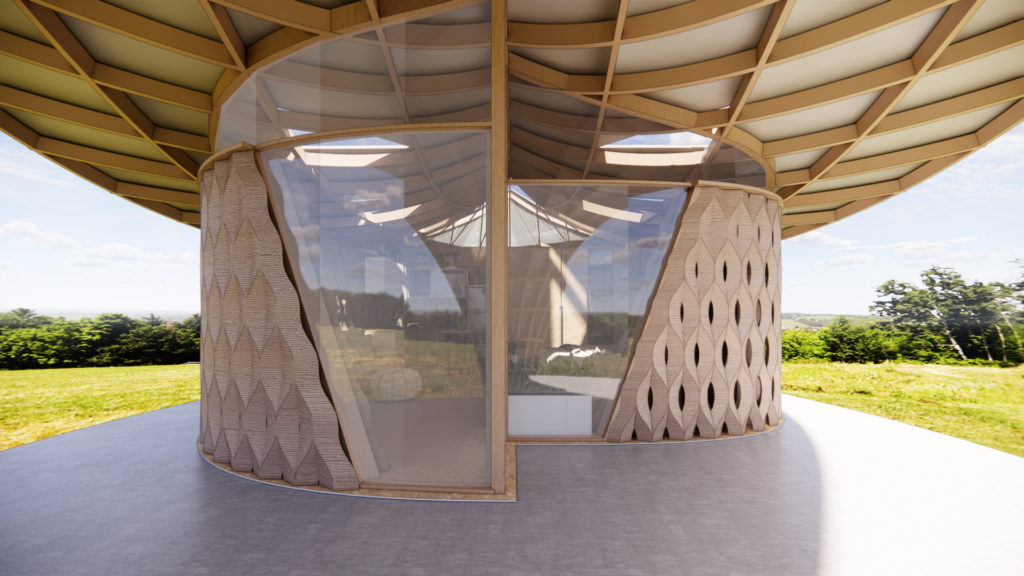
Nex-Living by IAAC (Spain) / ICON initiative-99 phase 1 Honorable Mention in student category
Climate-Responsive 3DP Wall
Our parametric design strategy is to create 3D-printed wall openings that respond dynamically to climatic conditions. Parameters such as orientation, sun exposure, and shading will influence the design shape. The system adapts to different positions within the housing unit, considering walls with varying degrees of exposure and shade.
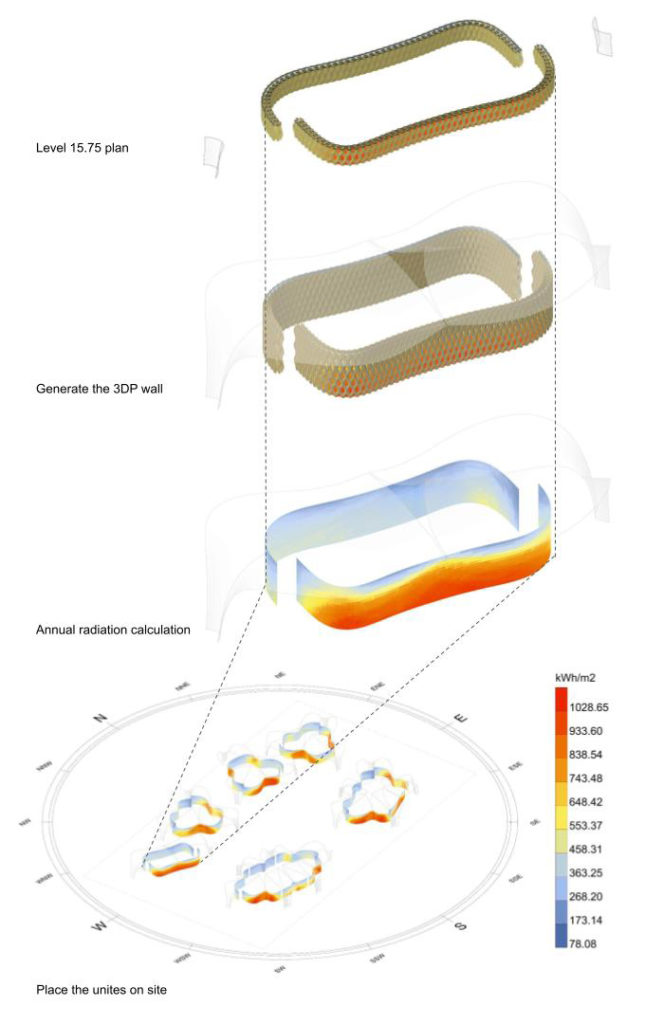
Nex-Living by IAAC (Spain) / ICON initiative-99 phase 1 Honorable Mention in student category
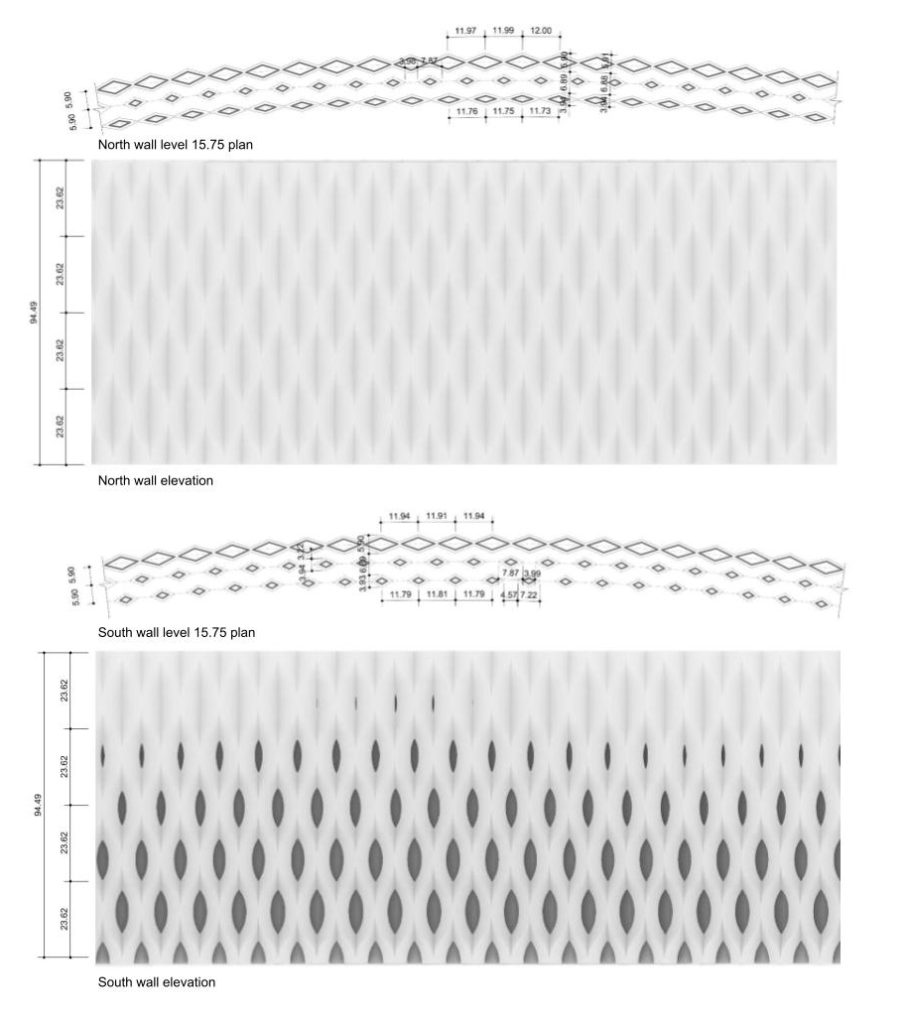
Nex-Living by IAAC (Spain) / ICON initiative-99 phase 1 Honorable Mention in student category
With three layers of diamond shapes, the inner layer remains a constant, ensuring a protective barrier. The outer layer dynamically adjusts, altering the size of the diamond shapes to craft strategic openings on the wall. This responsive design creates shaded areas that shield against sun radiation while facilitating optimal air ventilation


